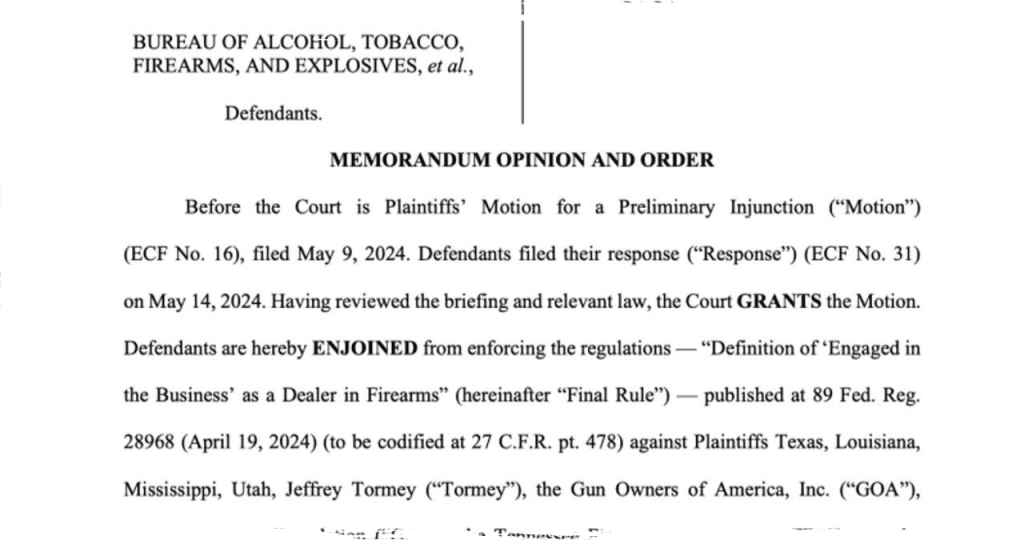A new rule by the Bureau of Alcohol, Tobacco, Firearms and Explosives that changes the definition of a firearms dealer in four states and for members of four organizations has been granted an injunction by a federal judge in Texas, preventing the agency from enforcing it.
According to the regulation, individuals who participate in “a single firearm transaction or offer to engage in a transaction” are considered firearms dealers who require a license.
Residents of Texas, Louisiana, Mississippi and Utah, as well as members of Gun Owners of America, Gun Owners Foundation, Tennessee Firearms Association, and Virginia Citizens Defense League are all subject to the injunction.
In its final rule, the ATF aimed to offer clarity to individuals who may still be uncertain about whether they are considered firearms dealers with the primary intention of making a profit.
On May 1, a lawsuit was filed and the preliminary injunction has now extended the temporary restraining order that was initially set to expire on Sunday.
U.S. District Judge Matthew Kacsmaryk pointed out that some plaintiffs are dealing with civil and criminal enforcement actions simply for engaging in conduct that the Bipartisan Safer Communities Act (BSCA) permits but is impermissibly prohibited by the Final Rule. This means that individuals are unable to partake in lawful, noncommercial conduct without the fear of prosecution. They’re also unable to collect firearms for personal defense while enjoying statutory protection. Additionally, disposing of firearms from personal collections is not an option for them due to the fear of being presumed as “engaged in the business.”
Residents of states not involved in the lawsuit, as well as those residing in Tennessee and Virginia, remain unaffected by this ruling.
The Tennessee Firearms Association expressed their elation over the recent triumph, stating, “Mr. Tormey and members of these four organizations, along with the residents of these four states, have achieved a significant win.” They added that although their members are presently safeguarded, it’s only because they decided to invest in the lawsuit and become party plaintiffs on their behalf.
Read More:
- Calls for funding and support for VA to address severe traumatic brain injuries
- Dozens of black pastors urge Shapiro to embrace school choice
